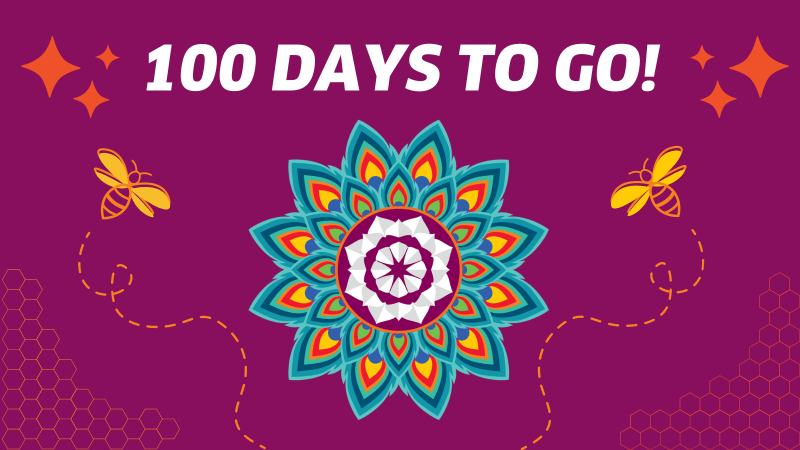
Tomorrow (Saturday, 17 August) marks 100 days until the start of the ICA Global Cooperative Conference - and is World Honey Bee Day! Bees are the world’s natural cooperators, working together – just as cooperative members do – to help build a better world for all.
There are over 20,700 different bee species worldwide, more than all of the world’s bird and mammal species combined! Much like cooperative members around the world, their collaboration offers valuable lessons about the power of working together.
In fact, the beehive was used by the Rochdale Pioneers in the stonework of their first store on Toad Lane, in 1844. Since then, it has become an emblem of the cooperative ethos, with various cooperative enterprises across the world using the beehive to symbolise industry and the cooperation required to carry out and succeed in work.
Bees exhibit fascinating cooperative behaviour. Worker bees cooperate to find and collect nectar and pollen, and communicate food sources using intricate dances. Bees collaborate to construct intricate honeycomb structures within their hives, and work together to maintain hive temperature. And they defend the hive against threats as a unified group.
What can cooperatives learn from bees?
Bees organise and work together. They appreciate that they can achieve much more together than alone, from building a home and finding food, to defending and migrating. This is the tenet that cooperatives are built on: members coming together to meet common economic, social and cultural needs and aspirations.
Bees work for the good of the whole hive. They produce honey that is shared by all and in doing so, provide for each of the hive’s members, who each have their own role in the hive’s structure. Cooperative members also receive the wider benefits of being in a cooperative - whether they are a worker-member, tenant-member, consumer-member or another type of member, with any surplus returning to members or being used to benefit the organisation.
Bees do good beyond their own hive. Bees benefit the world by pollinating other plants for the good of other species. Cooperatives do this too, benefiting the wider communities in which they operate, including through cooperation among cooperatives and concern for the community!
Don’t forget to book your Global Cooperative Conference ticket soon and join the thousands of other cooperators from around the world coming together in New Delhi (25-30 November) to work and learn together, for the benefit of all.
Photo: GettyImages




